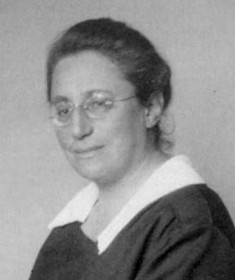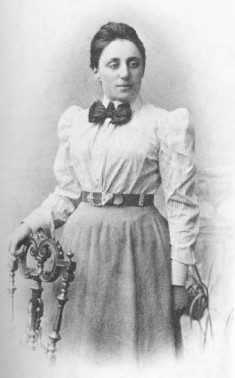Emmy Noether was a very influential German mathematician. She is best known for her important contributions to theoretical physics and abstract algebra. She has been described by great scientists such as Albert Einstein as the most important woman in mathematics history. She revolutionized theories such as rings, algebras and fields.
Early Life
Emmy was born on March 23, 1882, in Bavaria, Germany. Her father was Max Noether. He descended from a family of traders in Germany. Emmy was the first of four children. Initially, she was named Amalie after her grandmother and mother. After a while, she started using her middle name at a young age.
As a young girl, she was well liked but did not excel academically despite being known as clever and friendly. She was near-sighted and talked with a minor lisp as a young girl. She was taught to clean and cook and she also took piano lessons. However, she never pursued any of these activities with a passion.
University of Erlangen
Emmy showed great proficiency in French and English. In 1900, Emmy Noether took some exams to become a teacher of French and English. She passed well and therefore qualified to teach the languages at a girl’s schools. However, she opted to further her studies at the University of Erlangen.
While at the university, she was only allowed to audit classes instead of participating fully. She was required to get permission if individual professors whose lectures she wished to attend. Despite all these obstacles, she passed her exams in July of 1903.
Between the years 1903 and 1904, Emmy studied at the University of Gottingen. She attended lectures by Karl Schwarschild and mathematicians such as Otto Blumenthal, David Hilbert, Felix Klein and Hermann Minkowski.
In 1904, she went back to Erlangen and taught there for the next seven years. Between 1910 and 1911, she published an extension of her thesis work from three variables to n variables. From 1913 to 1916, she published several papers. She applied Hilbert’s method to objects such as invariants of finite groups and fields of rational functions. Basically, this marked the beginning of her engagement with abstract algebra.
Noether at the University of Gottingen
 During the spring of 1915, Emmy Noether was invited to go back to the University of Gottingen. However, the efforts to recruit her were stopped by historians and philologists in the faculty. They insisted that women should never obtain the rank of privatdozent, which is a professional title that is often used at European universities.
During the spring of 1915, Emmy Noether was invited to go back to the University of Gottingen. However, the efforts to recruit her were stopped by historians and philologists in the faculty. They insisted that women should never obtain the rank of privatdozent, which is a professional title that is often used at European universities.
In April of 1915, Noether left for Gottingen. Two weeks later, her mother passed away and during this time, her father retired and her brother joined the army to serve in WWI. As a result, she went back to Erlangen for a few weeks to care for her aging father.
During her first years at the university, Emmy demonstrated her strong capabilities by proving Noether’s theorem. After the First World War was over, the German Revolution (1918 -19) brought a great change in social attitudes, including more rights for women.
In 1919, Emmy was allowed by the university to continue with her pursuit of academic excellence. In late May of that year, her oral exam was held and she delivered her habilitation lecture the next month. Three years later, she received a letter from the Minister of Science of Prussia. She was being offered a position that would recognize the importance of her work, although with no salary.
Time in Moscow
In the winter of 1908, Emmy was invited to Moscow State University where she worked with P. S Alexandrov. Apart from research, she also taught algebraic geometry and abstract algebra. She also worked with topologists such as Nikolai Chebotaryov and Lev Pontryagin. Noether was not really into politics, but she took an interest in political matters and even showed support for the 1917 Russian Revolution.
Awards and Honors
In 1932, Emmy together with Emil Artin, received the Ackermann-Teubner Memorial Award. This was their contribution to mathematics. In 1932, her colleagues celebrated her 50th birthday in a typical mathematician’s style. In the same year in Zurich, she delivered a plenary address at the International Congress of Mathematicians. This congress was attended by about 800 people and is considered the high-point of her career.
Death and Legacy
Emmy’s success did not last for long. In 1935, she developed some complications as a result of an operation done to remove a uterine tumor. Shortly after, she died on April 14, 1935.
